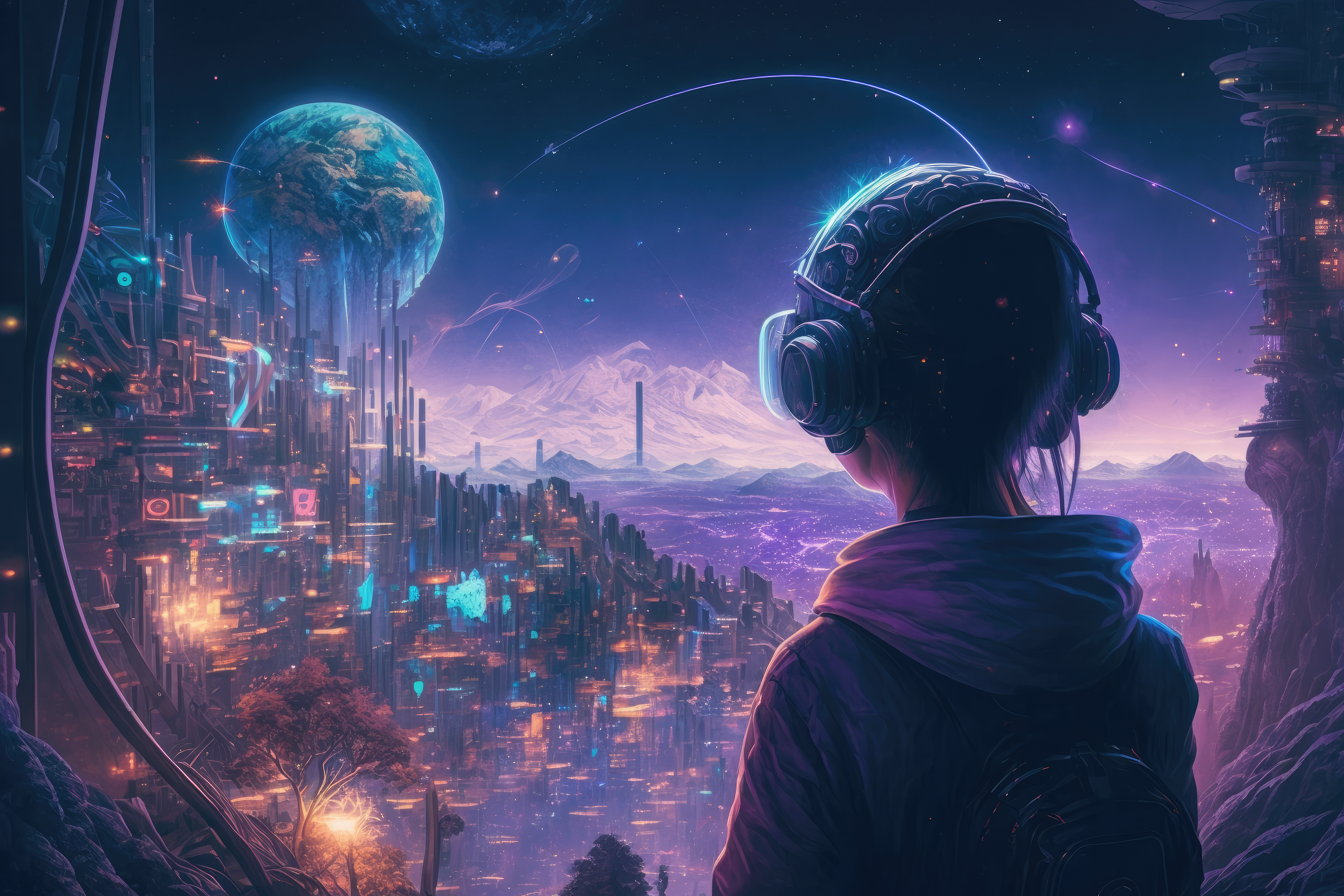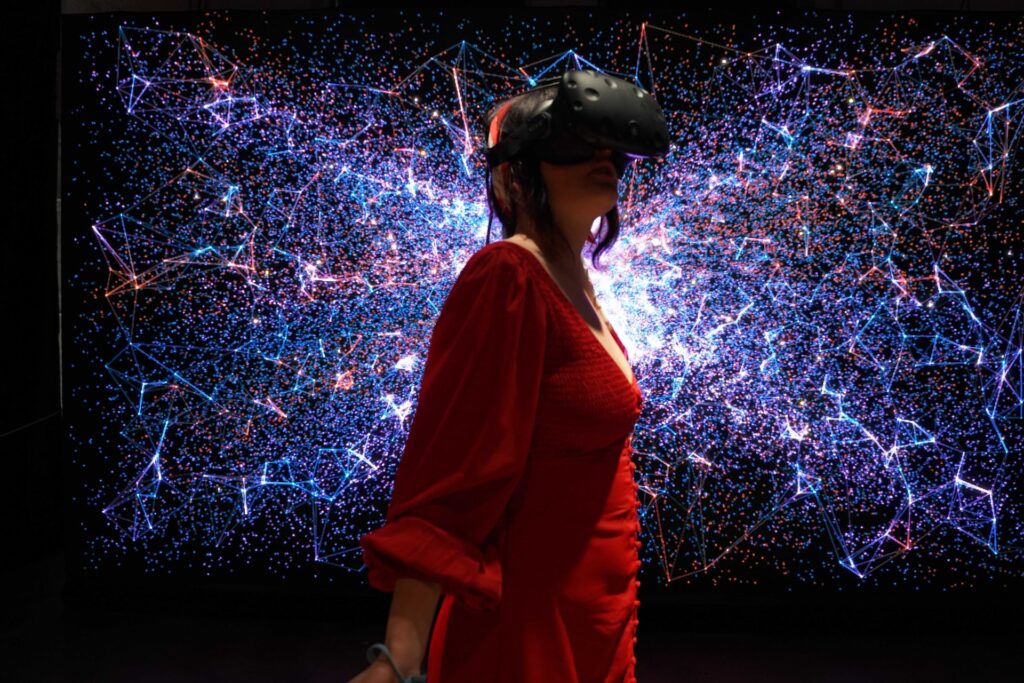What is the Metaverse?
The metaverse is a term used to describe the concept of a virtual world where users can interact with each other and with virtual objects in a shared space. This concept has been around for decades, but it has recently gained renewed attention with the advancement of technology and the growing popularity of virtual reality and augmented reality.

The Evolution of the Metaverse
The concept of the metaverse can be traced back to the early days of science fiction, where writers such as Neal Stephenson and William Gibson imagined a future where virtual worlds were as important and influential as the physical world. These early visions of the metaverse were largely limited to science fiction novels and movies, but as technology advanced, the concept began to become a reality.
In the 1990s, the first massively multiplayer online games (MMOGs) began to appear, providing early glimpses of what a metaverse might look like. These games, such as Ultima Online and Everquest, allowed players to enter a shared virtual world where they could interact with each other and with virtual objects. However, the technology at the time was limited, and the virtual worlds were crude and primitive compared to the visions of science fiction writers.
In the early 2000s, Second Life emerged as the first truly immersive virtual world, where users could create their own content and interact with each other in a shared space. Second Life was groundbreaking, but it was also limited by the technology of the time. The graphics were primitive, and the virtual world was not fully integrated with the real world.
In recent years, advances in technology have made it possible to create truly immersive virtual worlds that are indistinguishable from the real world. Virtual reality and augmented reality have made it possible to create virtual worlds that are fully integrated with the real world, and this has led to renewed interest in the metaverse.

The Metaverse Today
In recent years, many companies and platforms have started to invest in the metaverse, including Facebook, who has announced their plans to create a metaverse platform, which they call Horizon. Other companies such as The Sandbox, Roblox and Minecraft, have also seen a surge in popularity, as they allow players to create and interact in virtual worlds.
In addition, the rise of Non-Fungible Tokens (NFTs) has also played a significant role in the metaverse. NFTs are unique digital assets that can be bought, sold and traded, and they have become increasingly popular in the metaverse as a way to represent ownership of virtual assets, such as virtual real estate, digital art and collectibles.
Examples of famous games or places on the metaverse include:
- VRChat, a social VR game where players can interact with each other in a variety of virtual worlds.
- Decentraland, a virtual reality platform that allows users to create, experience, and monetize content and applications.
- Cryptovoxels, a virtual world where users can buy and own virtual land, and build on it using the Ethereum blockchain.
The Future of the Metaverse
The future of the metaverse is still uncertain, but it is clear that it has the potential to be a major force in the digital world. Some experts believe that the metaverse will eventually become a parallel universe where people spend most of their time, and that it will be as important and influential as the physical world.
However, there are also concerns about the potential negative effects of the metaverse, such as addiction and the erosion of privacy. These concerns will need to be addressed if the metaverse is to reach its full potential.
One thing is for certain, the metaverse is a concept that is here to stay and will continue to evolve as technology advances. It has the potential to change the way we live, work and play, and it will be exciting to see how it develops in the future. The integration of blockchain technology and the rise of NFTs have opened up new possibilities for the metaverse, such as true ownership and scarcity of digital assets. Additionally, the incorporation of virtual reality and augmented reality technology will make the metaverse increasingly immersive and realistic.
Furthermore, the emergence of 5G networks and the increasing accessibility of VR/AR devices will make the metaverse more accessible to a wider range of users. This will likely lead to an explosion in the number of users and the creation of new virtual worlds and experiences.
Conclusion
The metaverse is a term used to describe the concept of a virtual world where users can interact with each other and with virtual objects in a shared space. It has been around for decades, but it has recently gained renewed attention with the advancement of technology and the growing popularity of virtual reality and augmented reality. The metaverse today includes various platforms and games. The future of the metaverse is still uncertain, but it has the potential to be a major force in the digital world. It will be exciting to see how it develops in the future with the integration of new technologies like blockchain and 5G networks.
Come join me on Medium to listen and interact with my article. Let’s connect and continue the conversation there.
Latest Articles:
-
When Rome Whispers: A Sunset Journey Through Time
-
Rome’s Best-Kept Secrets: Hidden Gems Only Locals Know About
-
Rome: The Eternal City - Complete Guide
-
Rome in 3 Days: The Ultimate Itinerary for you!
-
Naruto: Review of the first Manga
-
Top 7 Free AI Certifications You Can Start Today
-
Guide to Snow (Winter) Photography
-
A Brief Guide to Financial Freedom
-
How to Become a Content Creator on TikTok
-
Embracing Vulnerability: Who is Brené Brown